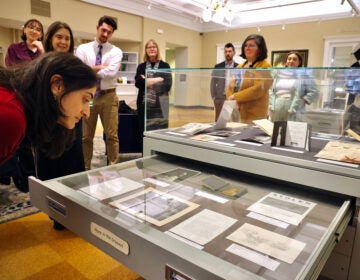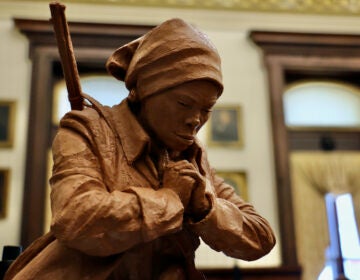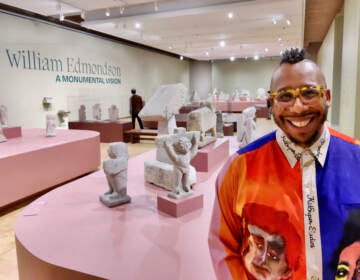A long-dead Pa. governor’s trip across town: Stolen Beaver bust recovered in FDR Park
-
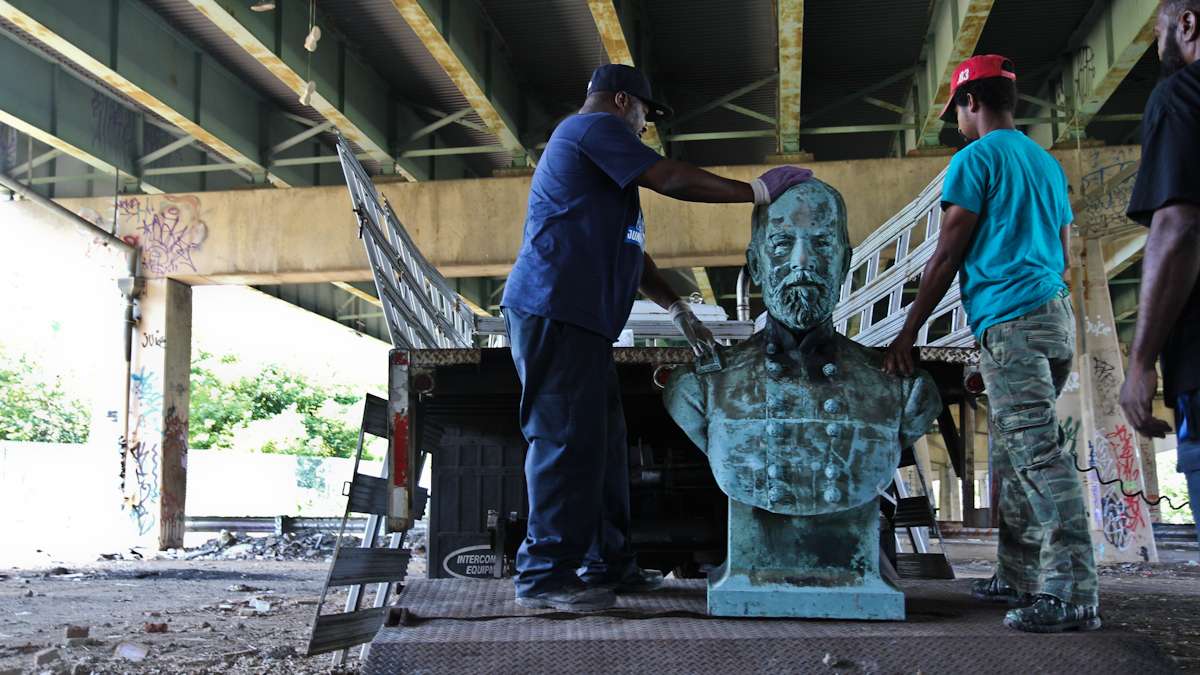
The Bust of General James Beaver, the 20th Governor of Pa., was found Friday at FDR park in South Philly. (Kimberly Paynter/WHYY)
-
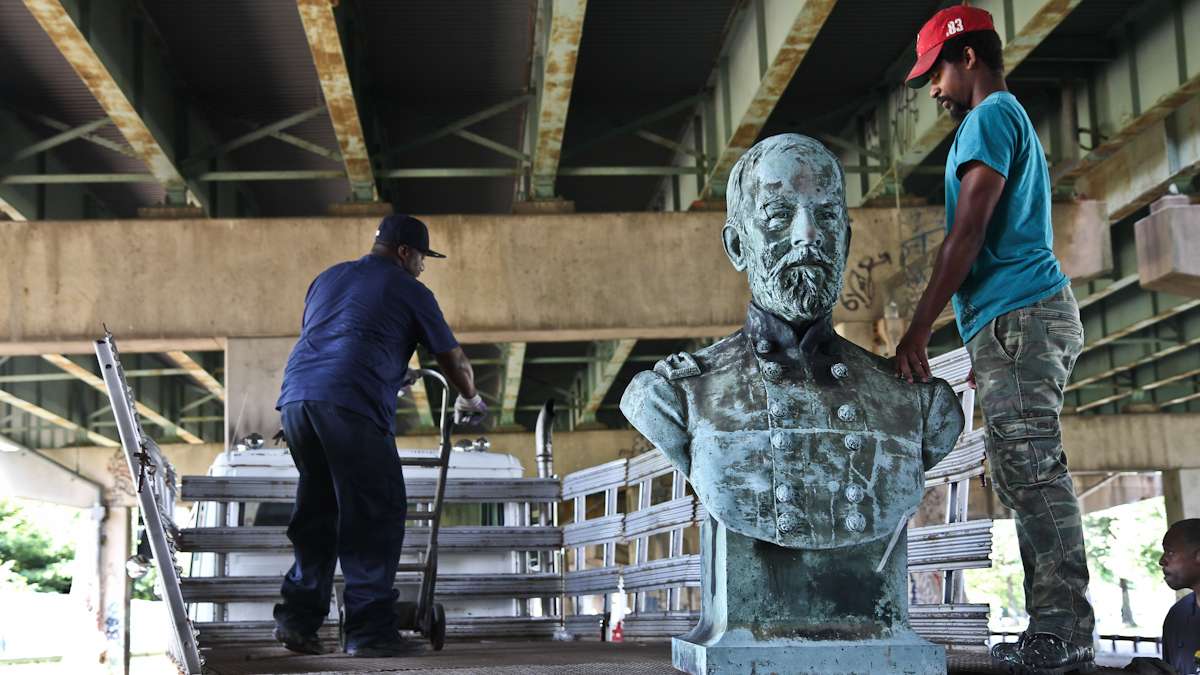
The Bust of General James Beaver, the 20th Governor of Pa., was found Friday at FDR park in South Philly. (Kimberly Paynter/WHYY)
-
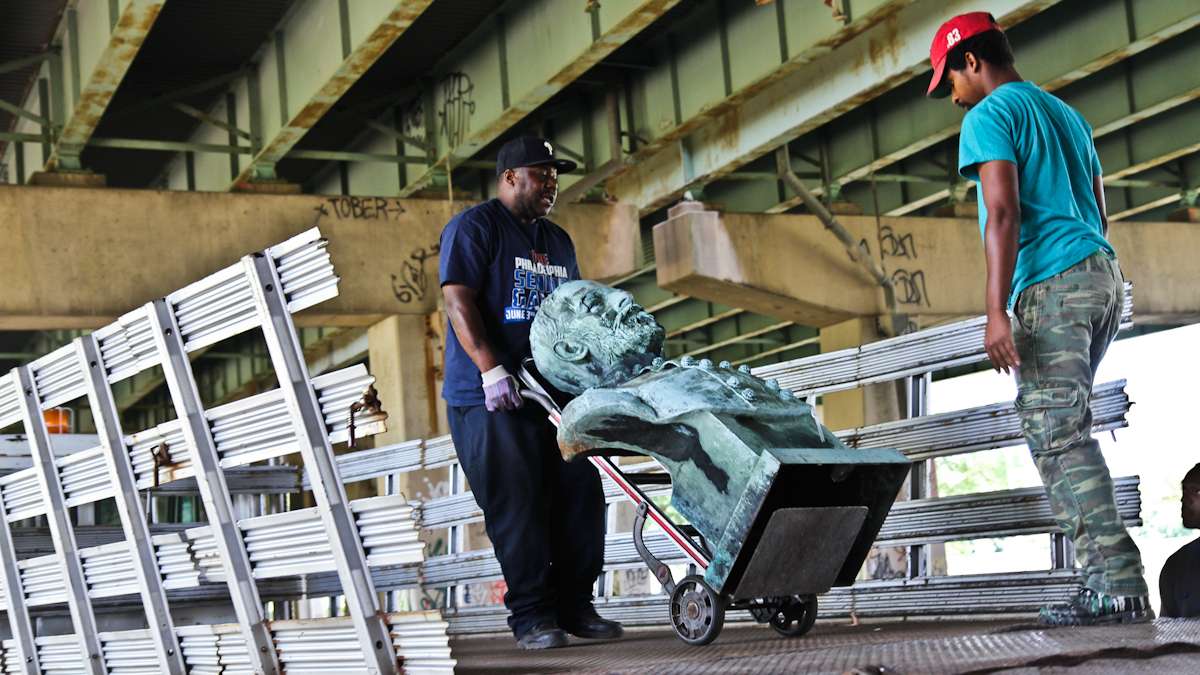
The Bust of General James Beaver, the 20th Governor of Pa., was found Friday at FDR park in South Philly. (Kimberly Paynter/WHYY)
-
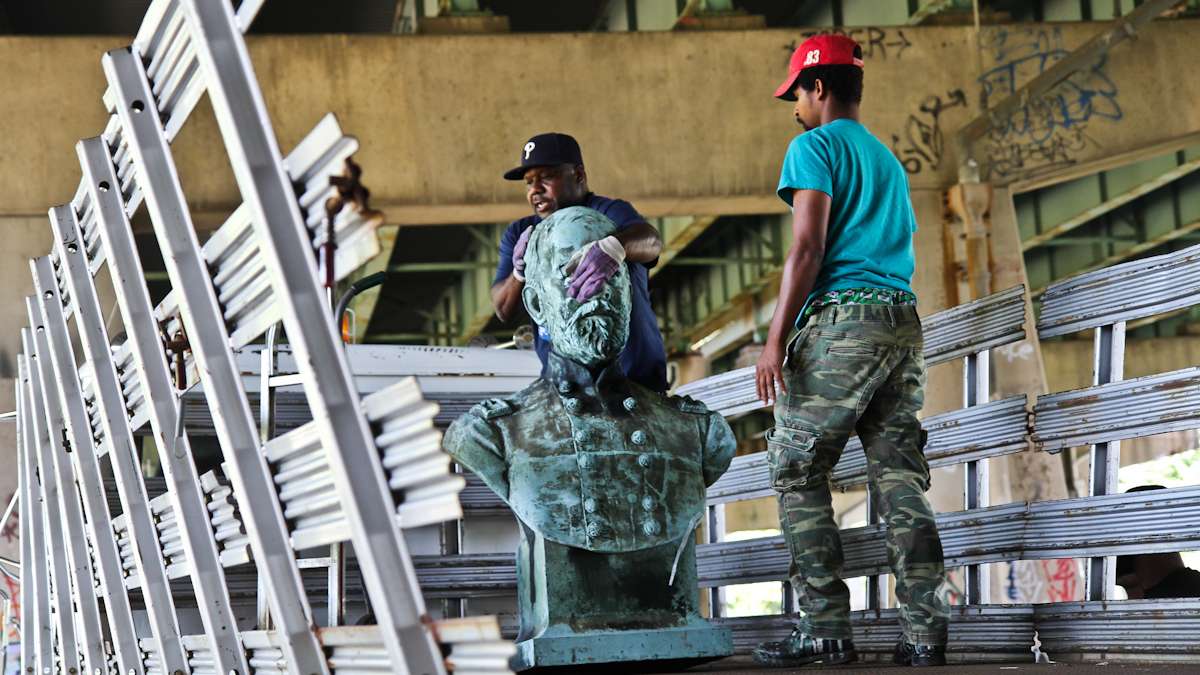
The Bust of General James Beaver, the 20th Governor of Pa., was found Friday at FDR park in South Philly. (Kimberly Paynter/WHYY)
-
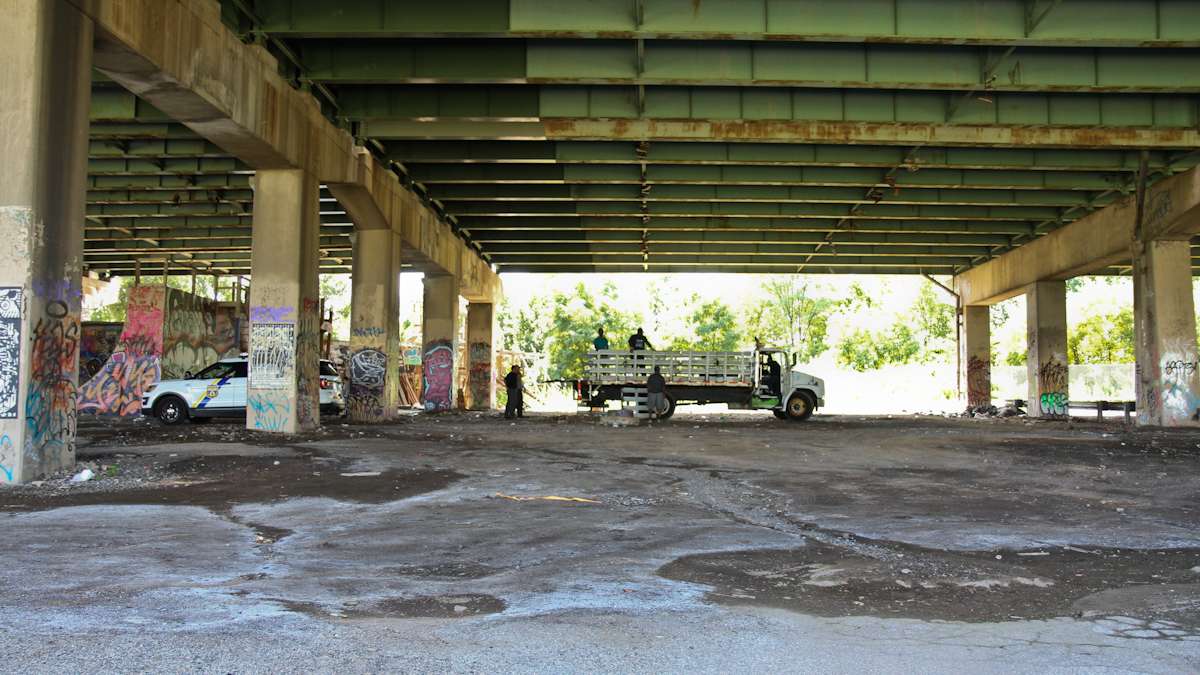
Parks and Recreation moved the Bust of General James Beaver, the 20th Governor of Pa., from FDR park in South Philly. (Kimberly Paynter/WHYY)
The stolen bronze bust of a Civil War-era military commander was discovered Friday morning, abandoned beneath an Interstate 95 overpass in FDR Park, after someone tore it out of the Smith Memorial Arch in Fairmount Park.
The bust of Gen. James Beaver, who was Pennsylvania’s 20th governor from 1887 to 1891, was one of eight busts mounted along the limestone arch, which multiple artists built between 1897 and 1912.
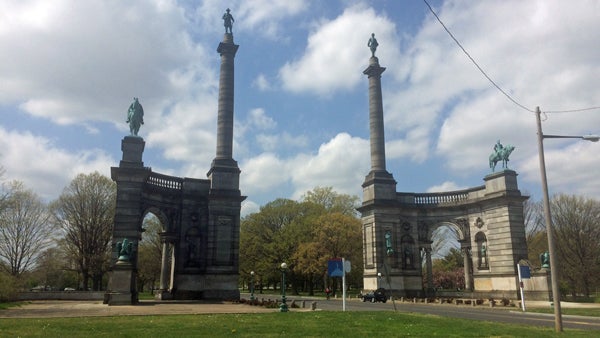
Police didn’t immediately have details on how or when it was stolen, nor whether the arch was otherwise damaged or other busts vandalized.
Removing it likely would have required robust power tools and a vehicle, art observers say.
The bust is one of more than 1,500 pieces of public art in Philadelphia, said Laura Griffith, associate director of the nonprofit Association for Public Art.
Theft is an uncommon problem — but a persistent concern, Griffith said. In past years, metal scrappers have stolen everything from manhole covers to buildings’ copper pipes to bridges’ decorative ironwork — and public art occasionally, too — to trade for cash, she said.
“It’s always a worry of ours, and in the past we have tried to alert the scrapyards of such theft being a possibility,” Griffith said. “But usually artworks are large enough and heavy enough, especially the bronze pieces, that it’s not such an easy thing to do. And when a piece of art comes to a scrapyard, they generally recognize it as a work of art and report it.”
There’s also a thriving underground industry reliant on stolen art.
On Friday morning, police officers and city workers milled around the bust, which sat upright in the dirt beside a graffitied overpass support, mulling how to return it to its proper perch. Around lunchtime, they loaded it onto a flatbed truck for its trip back to Fairmount Park.
Beaver was a lawyer and later, a judge, and briefly served as Penn State University’s acting president, from 1906 to 1908. He commanded the 148th Pennsylvania Volunteers during the Civil War, during which he was wounded three times before he lost his leg and had to retire from the military.
Modern-day Pennsylvanians unfamiliar with him are more likely familiar with things named after him, like Penn State’s Beaver Stadium and Beaver Hall, and Beaver Avenue in State College.
WHYY is your source for fact-based, in-depth journalism and information. As a nonprofit organization, we rely on financial support from readers like you. Please give today.


